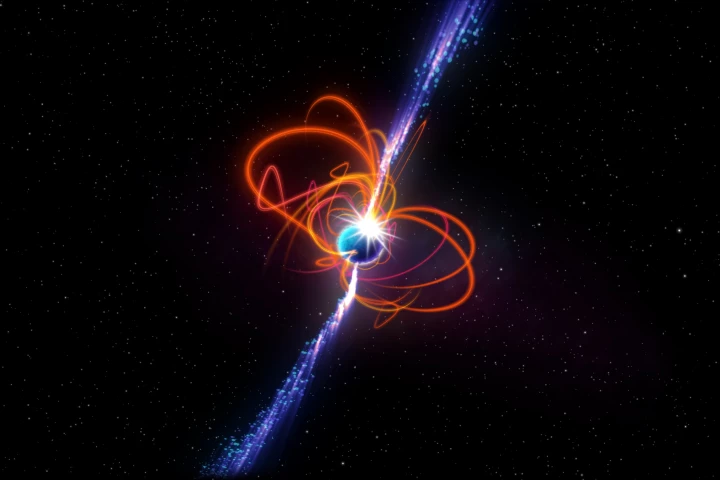Radio
-
Aliens might be able to detect us from the radio signals we beam to Mars to control our rovers there. Astronomers have now listened in on the nearby TRAPPIST-1 system to check whether aliens are chattering between their own neighboring planets.
-
Scientists at the University College London have set a new world record in wireless data transmission speeds, sending a blistering 938 Gigabits per second (Gbps) over the air through a combo of radio and light technology.
-
Astronomers have detected a really bizarre radio signal from space that repeats every hour, cycling through three different states. While they have some ideas about its origin it can’t be explained by our current understanding of physics.
-
A supermassive monster lurks at the center of our galaxy, and astronomers have now discovered that it’s spinning so fast it’s warping the very fabric of spacetime into a football shape.
-
It’s not often that space throws something entirely new at you, but in 2019 astronomers discovered a completely unknown phenomenon they called odd radio circles (ORCs). Now, more data may have revealed just how these rare objects form.
-
Astronomers have picked up a radio signal from eight billion years ago, meaning it’s traveled across the observable universe to get here. Thanks to its extensive experience in the cosmos, the signal can actually help us track down “missing” matter.
-
Cosmic radio signals are beaming to Earth every day – and astronomers are stumped as to their origin. Now a new study finds evidence that these signals, known as fast radio bursts (FRBs), could be caused by “starquakes.”
-
Almost three years after the event, neutron scans by the Oak Ridge National Laboratory have uncovered the cause of the platform collapse that resulted in the destruction of the 1,000-ft (300-m) Arecibo Observatory radio telescope.
-
One day on Mars is about 37 minutes longer than an Earth day – but it seems both planets are working to fix the gap. Data from NASA’s InSight lander have revealed Martian days are getting ever so slightly shorter, and scientists aren’t sure why.
-
Astronomers have detected a radio signal that blares for several minutes at a time, every 21 minutes, and has been doing so for at least 35 years. This bizarre signal doesn’t fit any known object without some major revisions to current physics.
-
Radio telescopes are picking up strange signals from an intelligent lifeform – ourselves. A new study has shown that satellite constellations like SpaceX’s Starlink swarm are unintentionally leaking signals that can interfere with vital observations.
-
San Francisco-based tech company Somewear Labs has taken the wraps off a pocket-sized military multi-networking communication device called Node that can automatically switch between internet-like mesh radio and satellite communications.
Load More











